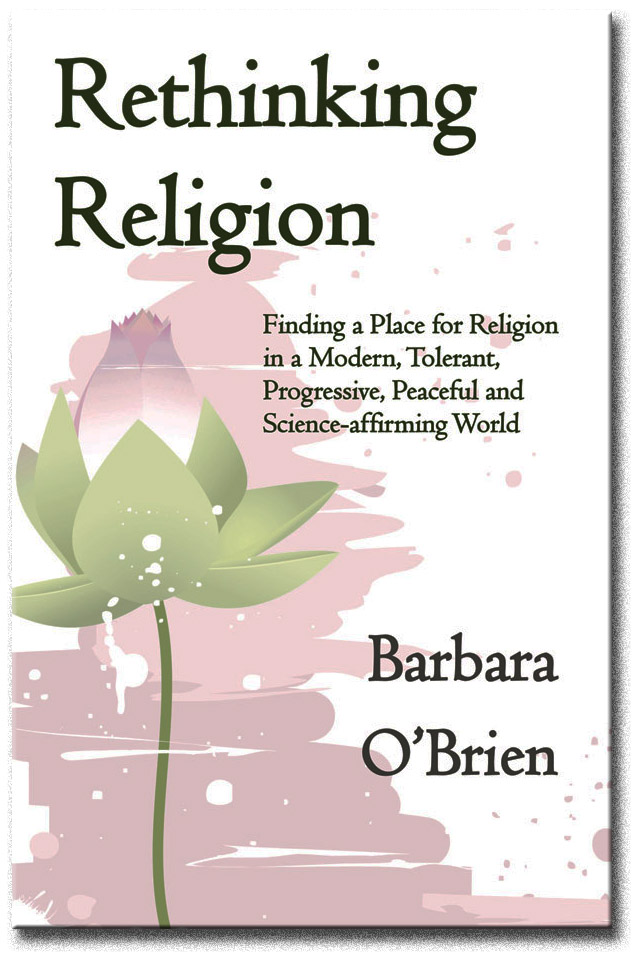Sam Harris is coming out with a new book called Waking Up: A Guide to Spirituality Without Religion, as if the world needs another “spiritual but not religious” book. I did a search in Amazon books for “spiritual but not religious” and easily got more than 2000 results.
As I complained awhile back (“My Heresy on Spiritual but Not Religious“) —
“Spiritual but not religious” has become a new orthodoxy. In some circles one cannot say anything positive about “religion,” even in a generic way, without being informed one is behind the times. Religion = bad. Spiritual = good. Religion is divisive and dogmatic and corrupt. It is riddled with sexual predators and scam artists. It is interested only in its own power. Spirituality, on the other hand, is all about free thinking, self-affirmation and happy folks tripping down the path of love and light.
Yeah, whatever. I’m spiritual and religious. Sue me.
Brilliant as ever, in the New York Times, Frank Bruni congratulates Harris for recognizing a growing trend —
Harris’s book, which will be published by Simon and Schuster in early September, caught my eye because it’s so entirely of this moment, so keenly in touch with the growing number of Americans who are willing to say that they do not find the succor they crave, or a truth that makes sense to them, in organized religion.
Next up: Bruni discovers Crocs!
I devote most of a chapter in Rethinking Religion to why I think the trend of separating religion and spirituality, while understandable, is a bad idea. Of course, spirituality is ever a vaguely defined thing, and often what is really meant is closer to one definition of mysticism. From Rethinking Religion:
…a mystical experience in this sense is one that is neither sensory nor conceptual. It is not dependent on seeing visions or hearing voices. It is not generated by reason or intellect. Through this experience, one may feel an intimate connection of existence beyond self, or realize something about the nature of reality not perceived before.
The spiritual-but-not-religious crowd calls these spiritual experiences, but it’s the same thing. Prominent atheist Sam Harris (author, neuroscientist, co-founder of Project Reason) has written quite a bit about spiritual experience, such as —
There is no question that people have “spiritual” experiences (I use words like “spiritual” and “mystical” in scare quotes, because they come to us trailing a long tail of metaphysical debris). Every culture has produced people who have gone off into caves for months or years and discovered that certain deliberate uses of attention—introspection, meditation, prayer—can radically transform a person’s moment to moment perception of the world.
— although Harris is determined to not connect these experiences to religion in any way, because of the “metaphysical debris.” People might erroneously think they’re having an experience of God or Brahman or some such, which is atheistically incorrect. Of course, God or Brahman can be understood in many different ways, to be discussed in the next chapter.
There is no question that religious doctrines provide a context in which people make sense of mystical experience. A few days ago I wrote a post about disturbing meditation experiences, which often seem to happen when people have intense mystical (as I’m defining it) experiences with no context or guidance.
It may be that once practice-realization has ripened all the contexts drop away, like dropping the raft once on the other shore. But that has to happen in its own time. If you’re still living in a fog of concepts and projections you need some context.
In some religious traditions mystical experiences are interpreted to support and confirm doctrine. In others, however, doctrine plays a supporting or guiding role for mystical experience. Sometimes doctrines are not to be “believed in” but are understood to be provisional explanations of the great ineffable thing one may realize directly through mystical experience. And sometimes gods, angels, dharmapalas and bodhisattvas are understood to be metaphors or archetypes rather than sky fairies.
Sam Harris will have none of that metaphysical debris, however. Frank Bruni asked him about this.
“You can have spiritual experience and understand the most thrilling changes in human consciousness in a context that’s secular and universal and not freighted with dogma,” he said when we spoke on the telephone last week.
In short, Sam Harris demands of the cosmos that it not bother him with anything that rocks his chosen worldview, and that’s his doctrinal context.
Some years ago Harris wrote an essay called “Killing the Buddha” in which he wrote,
The ninth-century Buddhist master Lin Chi is supposed to have said, “If you meet the Buddha on the road, kill him.” Like much of Zen teaching, this seems too cute by half, but it makes a valuable point: to turn the Buddha into a religious fetish is to miss the essence of what he taught. In considering what Buddhism can offer the world in the twenty-first century, I propose that we take Lin Chi’s admonishment rather seriously. As students of the Buddha, we should dispense with Buddhism.
One suspects old Lin Chi (Linji Yixuan, d. 866) would have given Harris several smacks in the head for this. In Zen, “killing the Buddha” means to let go of all concepts and preconceived ideas about Buddha — including the idea that Buddha is a separate thing that could be “met” — because such expectations get in the way of realizing Buddha. Harris is not killing the Buddha; he is merely replacing a version of Buddha he doesn’t like with one he does.
I’m sure many would argue that Harris’s self-imposed doctrinal parameters are at least rational, as opposed to belief in imaginary spirits. But in the context of mysticism they are both fabricated interfaces imposed on a reality beyond the limits of concepts and intellect, impediments to the grace of not knowing, and I don’t know that one is any more or less opaque than the other.

